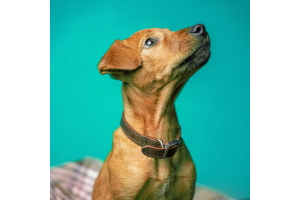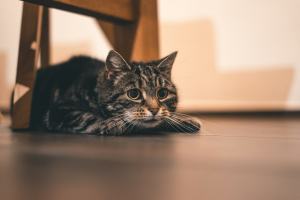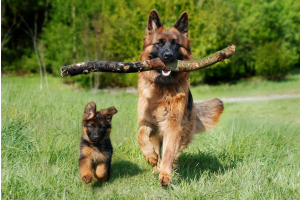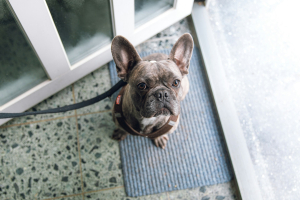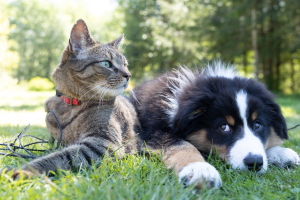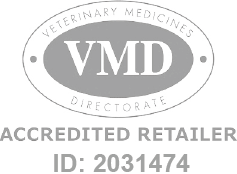Pet Safety at Christmas Time
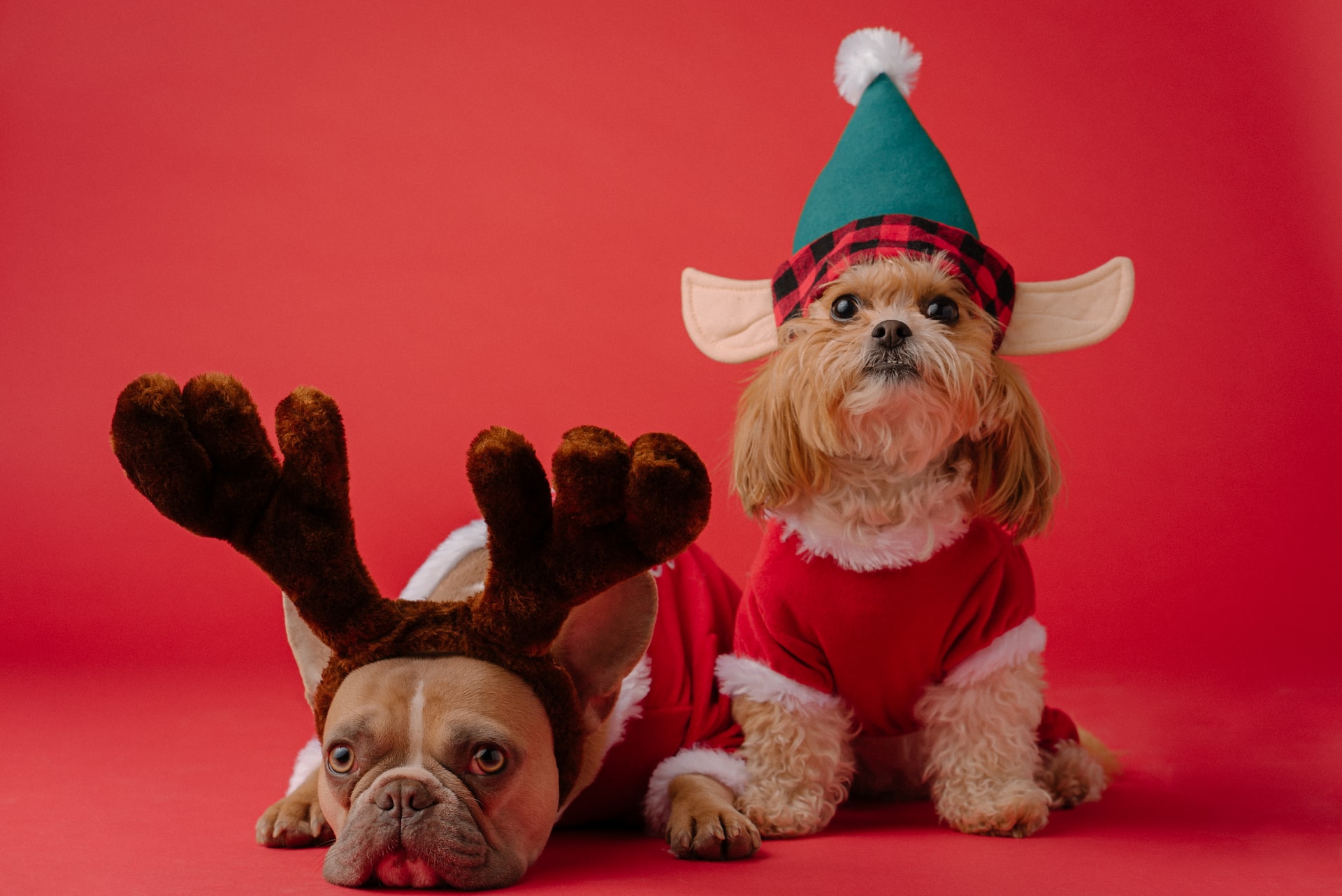
Pet Safety at Christmas Time
There are a number of steps you can take to safeguard your pet this Christmas when your house is full of guests. Many pets will find strangers interesting and will approach them gregariously. Conversely, some pets will find strangers terrifying. If your pet falls into the latter category and you are entertaining guests with whom your pet is unfamiliar, then you should take steps to mitigate their discomfort. Provide them with a safe place to retreat to and relax and keep in mind these other tips for pet safety at Christmas time.
Safety in the kitchen and elsewhere
If you are cooking, pets can provide an unwanted – and often dangerous – distraction. Tripping over an overbearing dog while carrying a hot pan is not a pleasant experience for either party. Similarly, any cat which inadvertently wanders onto a hot ceramic griddle will suffer severely. Avoid these problems by excluding your animals from the kitchen.
Abundant choking hazards
Most of the avoidable problems caused to pets during Christmas are those brought about by them eating something that they shouldn’t. Some pets can be remarkably under-discerning about what they put in their mouths so keep an eye out for things they could try to eat and choke on like you would a baby.
If feeding your pet Christmas leftovers, do so sparingly and ensure that no bones are present – and generally speaking, be sensible about which foods you give your pet. Small pieces of bone-free meat are fine, chocolates are not. It is important also to keep sharp objects, like knives, out of their way; at Christmas time, with so much cutlery littered everywhere and so many distractions, this is easily forgotten.
Christmas toys
Just as humans are often given toys to play with at Christmas, so too are pets. It is important that the two are kept separate, however: never give a pet a toy which isn’t explicitly designed with pets in mind. Pets will bite and swallow things and can choke on small plastic parts just as easily as they can a piece of errant cutlery.
Pets find other shiny things, like baubles, similarly interesting – and similarly suitable for ingestion. Ensure that such objects are kept safely out of reach of over-curious dogs and cats. Christmas lights can be ruined if excessively chewed on – to say nothing of the dog!
The dangers posed by seasonal plants
During winter, a great many attractive and desirable plants come to bloom. Unfortunately for pet owners, many of these plants, including mistletoe and holly, are toxic. If eaten in small quantities, they can cause mild irritation – in most cases enough to deter the animal without causing them significant harm. In large enough quantities, however, they are very poisonous. In most cases, it is best to err on the side of caution and keep such plants well beyond the reach of any animal that might conceivably want to eat them.
Safety around Antifreeze
Antifreeze is hugely dangerous to pets, as it is delicious. An alcohol derivative is contained in the substance, which lends it an extremely low freezing point – however, it also lends it a highly sweet flavour. Pets of all varieties can be consequently tempted into drinking it. Antifreeze is highly toxic and can cause fatal damage to the kidneys within a matter of hours. If you suspect that your pet has ingested antifreeze, it is important that you seek medical aid immediately.
Because of the severe consequence of drinking antifreeze, it is hugely important to be vigilant and to take steps to prevent your pet from doing so. Be on the lookout for greenish-blue puddles forming around your car – this might indicate a leak. If you are feeling especially cautious, you can opt for less toxic antifreeze, which contains propylene glycol instead of ethylene glycol.
On a somewhat related note, pets and other animals, often seek shelter from the cold underneath the comparatively warm, dry engines of parked cars. Ensure that no such creatures are present before starting the engine.
Ice and snow
Most breeds of cat and dog will form thicker coats during winter, in order to better protect them from the elements. Some, however, will not and this can lead to them experiencing discomfort and developing symptoms that humans will be familiar with, such as frostbite. In the case of cats and dogs, the ears and paws are the most vulnerable to frostbite, as they are the least protected by fur.
The ice and snow will also bring about indirect threats to your pet: grit and salt on the roads can cause irritation to your pet’s skin. So be sure to check their paws for signs of irritation.
There is little to be done to protect your pet from the cold, short of keeping them indoors. Fortunately, pets will do this of their own volition. Depending on your taste and the sort of pet you have, you might want to invest in a tiny little jacket for them to wear.
Clocks changing
When the clocks change, so too do the patterns of human society around which roaming pets base their lives. The extra hour will confuse and disorient your pet for a week or so – roads will fill suddenly with cars where there were no cars before and so incidences of pet-related road accidents increase. If you want to protect your pet against this, ensure they are not out during rush hour initially. Then also ensure that they have a collar and a microchip. Should anything untoward happen, this will aid immensely in you being reunited with your pet.
Fleas
The danger posed by fleas is at its highest during the summer months. Cases of flea infestations still occur during the winter though. A number of factors play a role in this, not least of which is complacency on the part of pet owners. Because fleas are not so common during winter, it is thought that the risk is minimal and the door is thereby opened to the tiny little parasites. Central heating provides the necessary heat for fleas to reproduce and spread.
Ensure that you keep an eye on your pet. Be on the lookout for signs of excessive itching, which might indicate that your pet has fleas. In this instance, a small amount of vigilance will go a long way.


